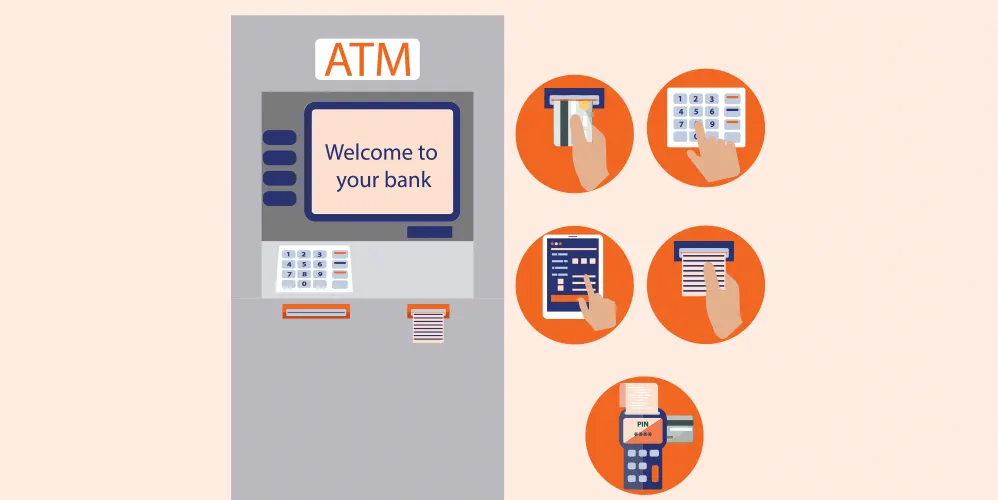
सावधि जमा की विशेषताएं और लाभ
14 अप्रैल 2023

Table of Content
A fixed deposit is one of the most popular investment options in India. Several people consider fixed deposits as the best investment option and invest a significant portion of their savings in this instrument. But what is a fixed deposit?
A fixed deposit is a type of deposit in which a sum of money is locked for a fixed period of time. However, the tenure for the fixed deposit is decided by the person who invests his funds. This tenure could be anywhere from a few days to several years. In return for locking in these funds, fixed deposits pay the depositor a fixed rate of interest. All banks offer fixed deposits at different rates. Opening a fixed deposit is extremely simple and can be done both online and offline.
Features of Fixed Deposit
The features of an FD are as follows:
- FDs have investment tenures ranging from 7 days to 10 years. It differs from bank to bank.
- The return on the invested amount is compounded periodically; it may be quarterly, annually, or monthly.
- Senior citizens are offered 0.5% higher returns compared to regular investors.
- Premature and partial withdrawals are usually permitted with penalties.
- Once the FD matures, one can reinvest the maturity amount.
To understand whether investing in a fixed deposit is the best option, we need to look at the advantages and disadvantages of fixed deposit account.
Let us examine the fixed deposit advantages and disadvantages.
Benefits of Fixed Deposit
The following are the benefits of fixed deposits -
Assured Rate of Return: The major reason why people prefer investing their funds in a fixed deposit is the assured rate of return. Once you invest your funds in a fixed deposit account, you can be guaranteed of receiving the stated rate of return. Banks also have a fixed deposit interest calculator on their websites where a customer can calculate the interest, he will receive on investing a particular sum of money for a particular period.
Tax Threshold for Interest: Banks are not mandated to deduct tax on any interest until it crosses the cap as per income tax guidelines. This provides comfort to small deposit holders.
Flexible Tenure: The tenure for a fixed deposit is flexible and depends on the deposit holder. Each bank has their own minimum tenure rules however, the final decision can be taken by the deposit holder. It is also possible to decide whether to redeem the fixed deposit or to extend it for the same period.
Easy Liquidation: It is relatively easy to liquidate a fixed deposit. For FDs booked online, they can be liquidated online via net banking as well. Otherwise, most bank branches have a form to liquidate the FD.
Loans Against Fixed Deposit: An FD is a dependable instrument to keep in case of financial emergencies. Taking a loan against a fixed deposit is very easy. You can take a loan up to 95% of the fixed deposit amount depending on the bank. This makes it a dependable investment.
Also Read - How To Open A Fixed Deposit Account
Disadvantages of Fixed Deposit
Reducing Interest Rates: Even though fixed deposits have a lot of advantages; the interest rates do not move in line with inflation. This means in some cases; they may actually earn less than the inflation rate. The interest rates for fixed deposits have been falling in recent times which has reduced the attractiveness of this investment.
Locked in Funds: Fixed deposits lock in your funds for a fixed duration. These funds are not available for you to use unless you withdraw the funds prematurely. Fixed deposits are not at all liquid and cannot be converted into cash easily.
Penalties on Withdrawal: Banks charge penalty to the depositors who withdraw their fixed deposits prematurely. This penalty is in the form of a reduced rate of interest.
No Tax Benefit: The interest earned on fixed deposit is added to the taxable income of the deposit holder. There is no deduction on any interest earned. However, senior citizens get a deduction up to Rs. 50,000 on interest.
Fixed Interest Rate: The rate of interest on a fixed deposit remains the same for the entire duration of the fixed deposit. Even if the rates increase, the bank does not pay additional interest to the deposit holder.
Conclusion
After looking at the advantages and disadvantages of a fixed deposit account, it is clear that this is an instrument for people who do not have much of a risk appetite. If you’re a person who likes to see fixed income in his account, then this is the instrument for you. The earnings from this form of investment are limited. However, banks have a sweep in facility where excess funds from a savings account can be diverted to a fixed deposit until the customer needs these funds. By enabling this feature, you can increase the returns from your fixed deposit account.
Popular Articles
Related Articles



What is CVV on a Debit Card? Understanding Its Importance and Security Features


How to Update Your FASTag KYC: Step-by-Step Guide for Online & Offline Methods




The Importance of Pension Funds: Secure Your Future with Steady Retirement Income

-
डिस्क्लेमर
इस लेख/इन्फोग्राफिक/चित्र/वीडियो की सामग्री का उद्देश्य केवल सूचना से है और जरूरी नहीं कि यह बैंक ऑफ बड़ौदा के विचारों को प्रतिबिंबित करे। सामग्री प्रकृति में सामान्य हैं और यह केवल सूचना मात्र है। यह आपकी विशेष परिस्थितियों में विशिष्ट सलाह का विकल्प नहीं होगा । बैंक ऑफ बड़ौदा और/या इसके सहयोगी और इसकी सहायक कंपनियां सटीकता के संबंध में कोई प्रतिनिधित्व नहीं करती हैं; यहां निहित या अन्यथा प्रदान की गई किसी भी जानकारी की पूर्णता या विश्वसनीयता और इसके द्वारा उसी के संबंध में किसी भी दायित्व को अस्वीकार करें। जानकारी अद्यतन, पूर्णता, संशोधन, सत्यापन और संशोधन के अधीन है और यह भौतिक रूप से बदल सकती है। इसकी सूचना किसी भी क्षेत्राधिकार में किसी भी व्यक्ति द्वारा वितरण या उपयोग के लिए अभिप्रेत नहीं है, जहां ऐसा वितरण या उपयोग कानून या विनियमन के विपरीत होगा या बैंक ऑफ बड़ौदा या उसके सहयोगियों को किसी भी लाइसेंसिंग या पंजीकरण आवश्यकताओं के अधीन करेगा । उल्लिखित सामग्री और सूचना के आधार पर किसी भी वित्तीय निर्णय लेने के लिए पाठक द्वारा किए गए किसी भी प्रत्यक्ष/अप्रत्यक्ष नुकसान या देयता के लिए बैंक ऑफ बड़ौदा जिम्मेदार नहीं होगा । कोई भी वित्तीय निर्णय लेने से पहले अपने वित्तीय सलाहकार से सलाह जरूर लें।
सावधि जमा खाता कैसे खोलें ?
सावधि जमा या सावधि जमा को आमतौर पर फिक्स्ड डिपॉजिट के रूप में जाना जाता है। बचत और चालू खातों जैसी मांग जमा से धन जुटाने के अलावा, बैंक द्वारा धनराशि जुटाने के लिए सावधि जमा का भी सहारा लिया जाता हैं। फिक्स्ड डिपॉजिट, जैसा कि इसके शब्द से पता चलता है, की एक निश्चित अवधि होती है।
आपकी निवेश आवश्यकताओं के लिए विभिन्न प्रकार के फिक्स्ड डिपॉजिट
सावधि जमा (एफडी) सबसे लोकप्रिय बचत और निवेश योजनाओं में से एक हैं। यह आपको एक निश्चित अवधि तक जमा की गई राशि पर का भुगतान करते हैं। यदि आप निवेश के मामले में जोखिम लेना पसंद नहीं करते हैं, तो आप विभिन्न प्रकार के सावधि जमा में से किसी विकल्प का चयन कर सकते हैं। एफडी एकदम सही हैं क्योंकि इसके परिपक्व होने पर हम होते ही अपनी मूल राशि और ब्याज को भुना सकते हैं।

